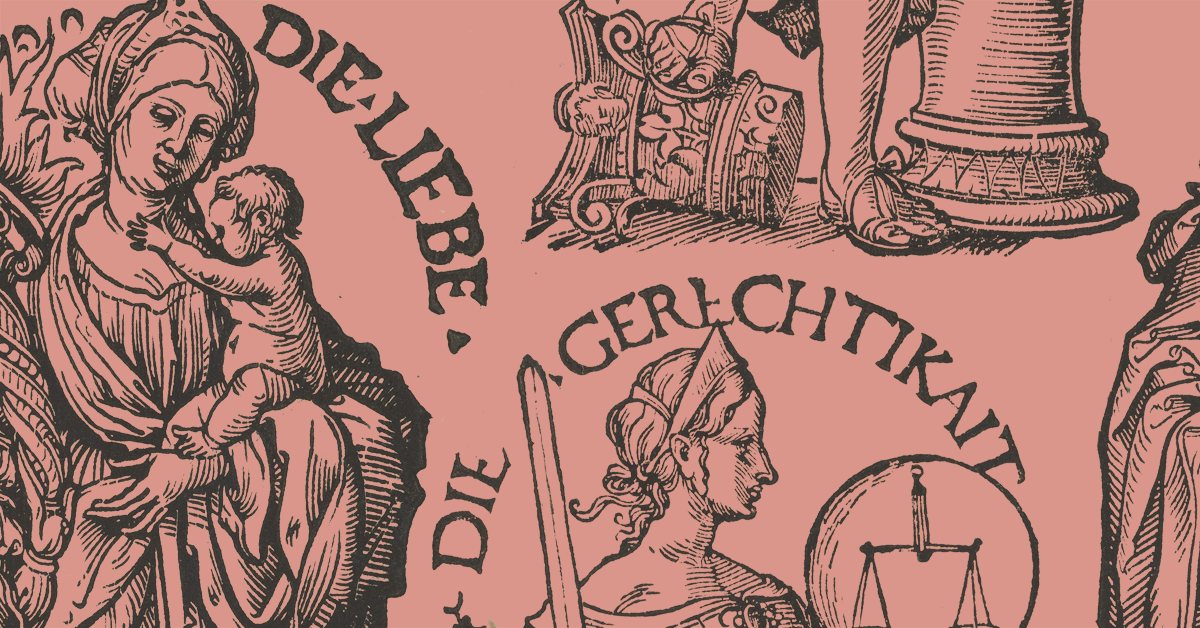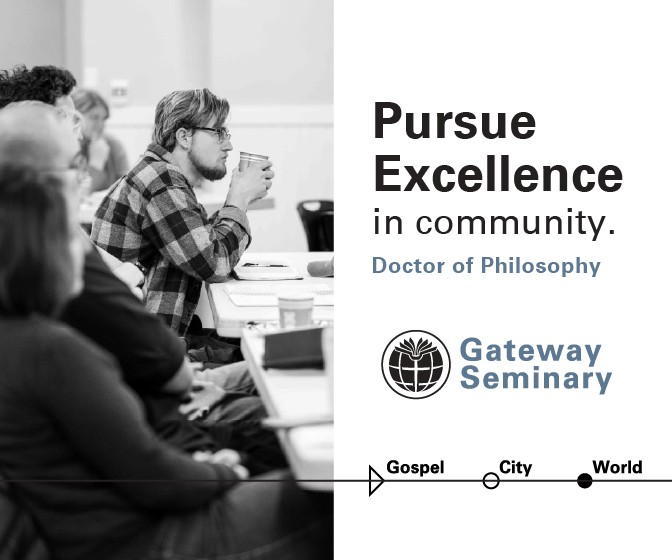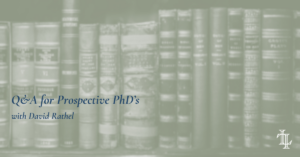Craig Carter and John Peckham have recently written books on theology. Carter has written an enthusiastic effort at the retrieval and defense of something he calls “classical theism,” and Peckham has written what he calls a “moderate classical theistic” account of the doctrine of God. Now Carter has written a review of Peckham’s book. We do not attempt to compare these books or the theological proposals forwarded therein. Instead, we focus attention on several aspects of Carter’s review. To get right to the point: we find his review to be fundamentally uncharitable, mistaken about central aspects of what he calls “classical theism” and “modern theology,” and confused in its criticisms. As Carter has acknowledged elsewhere, listening carefully to one’s opponents and representing their views fairly are not optional interpretive postures for those committed to seeking wisdom rather than scoring cheap rhetorical points. It is because we agree with Carter there—and because we find ourselves in sympathy with much of what he wants to defend—that we raise our concerns here.
I. Epistemic Virtues & Theological Argument: Carter on Peckham
We take it for granted that there are certain moral and epistemic virtues that ought to characterize theological argument. These include “the ability to recognize the salient facts; sensitivity to detail; open-mindedness in collecting and appraising evidence; fairness in evaluating the arguments of others; intellectual humility; intellectual perseverance, diligence, care and thoroughness,” and the like.[1] How does Carter’s review fare in light of these desiderata?
We need wait no longer than the first sentence of the review to have cause for concern. Here Carter identifies Peckham’s volume as excellent example of “the tradition of Wayne Grudem and twentieth century analytic philosophy.” Peckham’s book is characterized by Carter as an exemplar of the “kind of biblicism that became dominant in 20th c. evangelicalism [and that] fails to engage the deep logic of trinitarian and Christological dogmas,” holds that the “entire church has totally misunderstood the doctrine of God for the first 1500 years of its existence… [and] requires us to believe that it was liberal Protestantism that began to ‘correct’ the tradition by affirming relational theism after Hegel.”
There is much to unpack here. Just what “the tradition of Wayne Grudem and twentieth century analytic philosophy” is remains unexplained, but anyone with any acquaintance with Grudem’s work will not be likely to mistake it for the analytic philosophy of the twentieth or any other century. Yet things get even more perplexing, for somehow Carter links all of this to Hegel. More importantly, even if one concedes for the sake of argument that such a tradition exists, Carter fails to provide any evidence that Peckham’s volume belongs to it. Given that Carter’s description of this tradition is transparently derisive, the epistemic virtues of fairness, diligence, care, and the like require justification for identifying Peckham’s volume as fitting within this “tradition.”
The absence of such evidence alone should raise significant worries about the presence of the epistemic virtues necessary for a fundamentally just review. Contrary to Carter’s charges, there is nothing in Peckham’s work, at least so far as we can see, that commits him to the view that “the church has totally misunderstood the doctrine of God for the first 1500 years of its existence” or that liberal Protestantism is correct or that Hegel set theology on a good path. But things get worse.
Carter claims that Peckham “rejects the catholic doctrine of God as the one, simple, immutable, eternal, self-existent, perfect, First Cause of the universe.” But Peckham does no such thing. And Carter knows that Peckham doesn’t really reject this doctrine of God; he even admits that Peckham “denies that he is actually rejecting it.” Why does Carter say that Peckham criticizes and rejects what Peckham accepts? Apparently, Carter thinks that some of Peckham’s positions entail such rejection and denial. Well, that point is fair enough; maybe they do and maybe they don’t have such entailments. But in this case Carter owes us actual arguments. Instead, in place of such arguments, he offers only assertions.
Consider a politician who vilifies his opponent by saying that her positions are “identical to the standard platform of the Democratic party”—and then goes on to admit that she is a champion of, say, free markets, individual rights, limited government, privatization, pro-life causes, and very large walls on the southern border of the United States. Hearing such a politician, we would likely dismiss such talk as either evidence of deep confusion or simply an effort to score cheap rhetorical points, if not actually just bearing false witness.
We want to be clear: the doctrine of God lies at the heart of the Christian faith. These issues matter. And it is because they matter that the moral and epistemic virtues that attend to sound argument are an essential ingredient to such important theological work. Surely the subject matter demands at least this much.
II. On Argument by Reductive Labeling: “Classical Theism” and “Relational Theism”
Shortly after admitting Peckham does not actually reject the catholic doctrine of God, Carter dumps an entire gallimaufry of theories into one big bucket that he labels “relational theism.” Here he includes what he calls “theistic mutualism, theistic personalism, social trinitarianism, open theism, dynamic panentheism, pantheism and process theology.” He does not define any of these terms, and he appears unbothered by concerns that some of the erstwhile proponents of such views often take them to be opposed and mutually exclusive.[2] But whatever exactly “relational theism” means, he draws a stark contrast between it and “classical theism.”
Matters get worse when Carter moves from what he criticizes and rejects to what he accepts and champions. He repeatedly refers to “classical theism,” but he takes no notice of the important variegations within the tradition of classical Christian theology. To be clear, we have no principled objection to the use of the term “classical theism,” but we do think that it is important to be clear about the substantial differences within that tradition. For while there is a great deal of common ground within the traditions of pro-Nicene and pro-Chalcedonian theology as it is received and developed by the medieval and early modern scholastics, we take it to be simply undeniable that there are also significant doctrinal variations that emerge and develop within this tradition.
There are differences with respect to the doctrine of divine simplicity, there are various accounts of Trinitarian personhood, and there are different proposals with respect to how these doctrines (of Trinity and simplicity) come together.[3] There are differences within the doctrines of the divine intellect and will. There are differing views of language for God. There are various proposals for thinking about the metaphysics of the incarnation. There are sharply differing views of the doctrine of original sin—and, notably, of the nature and necessity of the work of Christ. Carter, however, simply paints over all such distinctions and proceeds as if there is one big thing called “classical theism” (that can be neatly opposed to this other big thing called “relational theism”).
Notably, in the final paragraph of the review, Carter turns to the question of how a holy God could keep his covenant promises with an unholy people. Carter identifies the answer to the question as Isaiah 43:3 “For I am the LORD your God, the holy One of Israel, your Savior.” Carter states that this “mysterious, incredible answer is difficult to understand but profoundly determinative of salvation history. Once it is given the incarnation has become an absolute necessity.” This is a puzzling claim—we aren’t told how anything becomes an “absolute necessity.” But the claim is not only befuddling; even if Carter means to affirm some sort of accidental necessity (rather than absolute necessity), if his claim is taken as a summary of the tradition of “classical theism,” then it is simply mistaken. For while some medieval and early modern scholastic theologians (e.g., Anselm, John Owen) do think of the incarnation as necessary (for the redemption of sinful humans), others (e.g., Thomas Aquinas, John Calvin) deny this claim and hold that it was possible for human sinners to be saved through other means (if God had so decreed).
Such mistakes are unfortunate, for they repeat—albeit in mirror image—the earlier historiographical errors of the previous and much-maligned generation. In days past it was “this one big thing called ‘classical theism’ is bad, and our new movement called ‘Social Trinitarianism’ is super awesome,” but in days present it is “the ‘Social Trinitarian’ movement misunderstood and mistakenly rejected the tradition, and this one big thing called ‘classical theism’ is great!” The difference between days past and days present is which view draws the cheers and which one gets the aspersions, but the temptation remains the same: to flatten out the tradition of “classical theism” and then reject “it” or accept “it” as such.
III. Catholicity and Classical Theism: Carter on “The Doctrines of Grace”
The final half of the review contains Carter’s analysis of the root cause of the various ills diagnosed in Peckham’s book. He writes:
It seems to me that the view of God taught in Peckham’s book – and many other Evangelical works – is the necessary outworking of a synergistic view of salvation. In Arminianism, the bottom-line doctrine that is prized above all others is the teaching that we must – by an act of sovereign, undetermined will – choose to believe and be saved. Arminianism cannot allow that basic act of repentance and faith to be anything but the sole act of the creature.
As should be expected at this point, the relevant labels go undefined. Presumably, ‘synergistic view[s] of salvation’ is the genus of which Arminianism is a species. And while stopping short of defining the term, here he has made a descriptive claim about those on the receiving end of one of his labels. But is the description accurate? Take the final sentence: “Arminianism cannot allow that basic act of repentance and faith to be anything but the sole act of the creature.”
Now consider one plausible representative of the Arminian tradition on the question, Jacob Arminius: “The cause of this repentance is God by his word and Spirit in Christ. For it is a repentance tending not to despair, but to salvation; but such it cannot be, except with respect to Christ, in whom, alone, the sinner can obtain deliverance from the condemnation and dominion of sin.”[4] And in the following disputation, Arminius writes, “Evangelical faith is an assent of the mind, produced by the Holy Spirit, through the gospel. . . The author of faith is the Holy Spirit, whom the Son sends from the Father, as his advocate and [vicarium] substitute, who may manage his cause in the world and against it.”[5]
Or consider John Wesley on the free grace of God: “It is free in all to whom it is given. It does not depend on any power or merit in man; no, not in any degree, neither in whole, nor in part. It does not in anywise depend either on the good works or righteousness of the receiver; not on anything he has done, or anything he is. It does not depend on his endeavors. It does not depend on his good tempers, or good desires, or good purposes and intentions; for all these flow from the free grace of God; they are the streams only, not the fountain. They are the fruits of free grace, and not the root. They are not the cause, but the effects of it. Whatsoever good is in man, or is done by man, God is the author and doer of it. Thus is his grace free in all; that is, no way depending on any power or merit in man, but on God alone, who freely gave us his own Son, and “with him freely giveth us all things.”[6]
Or consider the Methodist theologian William Burt Pope: “The Spirit of Grace is the Author of every movement of man’s soul toward salvation . . . The Holy Spirit is the sole, efficient cause of all spiritual good in man: of the beginning, continuance, and consummation of all religion in the human soul.”[7]
These are not terribly obscure theologians within the Arminian tradition. Nor are these sources difficult to find: all three are available online, at no cost, and are either written or translated into Carter’s native tongue.
Perhaps Carter believes that, despite their repeated declarations to the contrary, some aspect of Arminian theology implies or entails Arminian theologians are committed to not allowing repentance and faith to be anything but the sole act of the creature. But if so, we are owed an argument for that conclusion. In the absence of such an argument, to describe the theological position of millions of Protestant and evangelical Christians as committed to material heresy falls somewhat short of charitable theological engagement.
As we have seen, Carter gets “Arminianism” wrong, but there are other issues here. Carter’s central contention here is that the “doctrines of grace” of the Reformed tradition are tied together with “classical theism.” The exact nature of the relationship is not clear: is Carter saying that “classical theism” entails Reformed soteriology, that Reformed soteriology entails “classical theism,” that “Arminianism” entails “relational theism,” or something else entirely? And is his point one about logical relations? Or is it a historical argument?
If he means that classical theism entails Reformed soteriology, then he owes us an argument that takes into account the many “classical theists” who were and are Roman Catholic, Orthodox, Lutheran, or “Arminian” rather than Reformed. Are they just too daft to see the point that he takes to be obvious enough that he can simply assert it sans argument? If he means that Reformed soteriology entails classical theism, what does he do with the modern Reformed theologians who were not standard-issue classical theists?
The sober truth is both stubborn and complicated. On one hand, it is indisputable that some of the Reformed were willing to entertain suggestions from modern philosophy and make adjustments to the doctrine of God. There are, to be sure, many “classical theists” in the tradition of Reformed scholasticism. But there are also innovators (such as Jonathan Edwards, but also the Reformed Cartesians) who make significant adjustments to the tradition. On the other hand, there is a steady stream of non-Reformed theologians who are committed to the core of the traditional doctrines of God; here we need to be aware not only of important Roman Catholic theologians such as Francisco Suarez and prominent Anglo-Arminians such as Thomas Jackson, John Goodwin, and Daniel Waterland but also the prominent Lutheran scholastics such as David Hollaz and Johann Gerhard and the Methodist theologians of the nineteenth century from Richard Watson to William Burt Pope. It is important to get the full picture here: for not only did these non-Reformed scholastic theologians hold fast to such doctrines as the doctrine of simplicity, but many of them also actually appealed to divine simplicity as grounds for rejecting Reformed soteriology.[8] Far from feeling pressure to reject or alter their doctrine of God, they understood their classical doctrines of God to give them ample reason to resist Reformed theology.
IV: Final Considerations
Carter’s work is part of a broader movement within contemporary Protestant and evangelical theology that seeks to recover aspects of classical Christian theology that have been misunderstood, neglected, or set aside. There is much to commend about this project, and we want to see it succeed and flourish. One of the commendable aspirations of the movement is its commitment to careful historical scholarship within the history of doctrine. Another is its commitment to catholicity, to the rich and vibrant history of reflection shared by Christians across the divisions that now mark the church. As such, the movement is as much a commitment to what has been called a “theological sensibility” as it is to recovering particular material dogmatic claims.
For the project to succeed and flourish, its practitioners must be committed to demonstrating the moral and epistemic virtues outlined above. This is in keeping with the theological sensibility demonstrated in the best scholarship this movement has produced. Fairly representing opposing positions, avoiding prejudicial or historically inaccurate labels, producing careful arguments rather than rhetorically charged assertions: these characteristics are indispensable if the project is to survive, let alone flourish. Anything less would be inconsistent with the standard of rigorous argument that is so deeply ingrained in the very classical tradition that it seeks to recover.
If nothing else, it is our hope that Carter will reconsider his approach to engaging those he disagrees with in the future, both for the sake of the church, and the classical Christian tradition he is eager to defend.
[1] Linda Zagzebski, Virtues of the Mind, (Cambridge: Cambridge University Press, 1996), 114.
[2] As noted in the introduction, we are limiting our interaction to Carter’s review of Peckham, and are not engaging his recent book, or Peckham’s for that matter. We can note, however, that while Carter attempts to provide definitions of both relational theism and classical theism in his book, the definitions provided there suffer from several critical ambiguities, and do not obviously correspond to the viewpoints and positions that he assigns to them. For an overview of some of these problems, see Jordan Steffaniak’s recent review of the volume.
[3] For introductions to the complex debates, see Richard A. Muller, Post-Reformation Reformed Dogmatics, vol. 3: The Divine Essence and Attributes, 4 vols. (Grand Rapids: Baker Books, 2003), 53-82, 271-298; J. T. Paasch, Divine Production in Late Medieval Trinitarian Theology: Henry of Ghent, Duns Scotus, and William Ockham, 1st edition (Oxford: Oxford University Press, 2012); Mark K. Spencer, “The Flexibility of Divine Simplicity,” International Philosophical Quarterly (2017):123-139; Russell L. Friedman, Medieval Trinitarian Thought from Aquinas to Ockham, (Cambridge: Cambridge University Press, 2013); Thomas H. McCall, “What’s Not To Love? Rethinking Appeals to Tradition in Contemporary Debates in Trinitarian Theology,” forthcoming.
[4] Jacob Arminius, Disp. priv., 43. In The Works of James Arminius, trans. James Nichols, (Auburn and Buffalo: Derby, Miller and Orton, 1853), 108.
[5] Jacob Arminius, Disp. priv., 44. In The Works of James Arminius, trans. James Nichols, (Auburn and Buffalo: Derby, Miller and Orton, 1853), 109–10.
[6] John Wesley, Sermon 128, “Free Grace.” §1. Emphasis added.
[7] William Burt Pope, A Compendium of Christian Theology: Being Analytical Outlines of a Course of Theological Study, Biblical, Dogmatic, Historical (New York: Phillips & Hunt, 1882), vol. 2, 359.
[8] Thomas H. McCall, “Divine Simplicity and the Will of God in Early Modern Predestinarian Polemic,” forthcoming.
Authors
-

Thomas H. McCall (PhD, Calvin Theological Seminary) is the Timothy C. and Julie M. Tennent Chair of Theology at Asbury Theological Seminary. His most recent publications include Analytic Christology and the Theological Interpretation of the New Testament (Oxford University Press, 2021), After Arminius: A Historical Introduction to Arminian Theology, co-authored with Keith D. Stanglin (Oxford University Press, 2020), and Against God and Nature: The Doctrine of Sin (Crossway, 2019).
View all posts -






